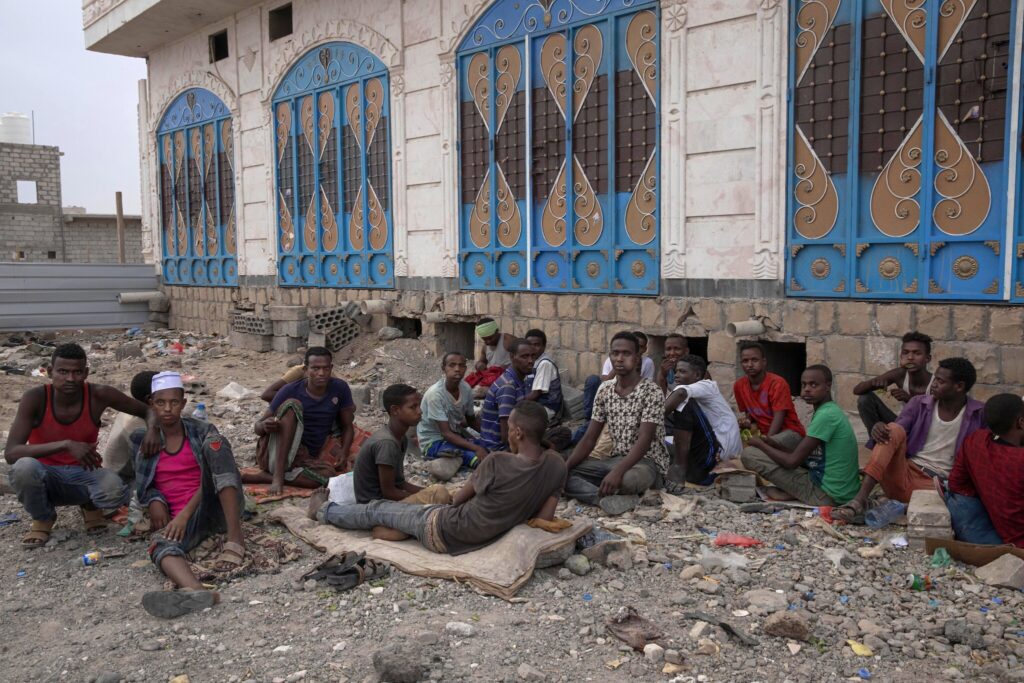
Human Rights Watch (HRW) reported on Monday that Saudi Arabian border guards have fatally shot hundreds of Ethiopian migrants, including women and children, who were trying to cross into the kingdom along its rugged border with Yemen.
In a detailed 73-page report, the human rights group disclosed that Saudi border guards used explosive weaponry to fatally wound certain migrants and fired at others from close range.
The report gathered accounts from 38 Ethiopian individuals who attempted to cross the Yemen-Saudi border from March 2022 to June 2023, along with testimonies from four relatives or acquaintances of these migrants.
Human Rights Watch indicated that assaults on clusters of migrants, utilizing isolated mountain paths to enter Saudi Arabia on foot, were both “widespread and systematic” and the “killings are continuing”.
A Saudi representative, who remained anonymous, responded via email on Monday to queries from the government’s media office, dismissing HRW’s claims as “unfounded and not based on reliable sources.”
Saudi officials have vehemently refuted allegations from U.N. representatives in 2022 asserting that border guards systematically took the lives of migrants the previous year.
The U.S. State Department spokesperson stated that concerns regarding the allegations in the report had been communicated to the Saudi government.
Washington emphasized the need for a comprehensive and transparent investigation, spokesperson said.
Approximately 750,000 Ethiopians are believed to reside in Saudi Arabia, as indicated by U.N. assessments. A significant number have left Ethiopia due to economic challenges, while the northern Tigray region has experienced a harsh conflict in recent times.
The migration path spanning from the Horn of Africa, crossing the Gulf of Aden, traversing Yemen, and reaching Saudi Arabia – one of the wealthiest nations in the Arab world – serves as a long-standing route for Ethiopian migrants.
Human Rights Watch (HRW) constructed its report using accounts from witnesses, along with 350 videos and images documenting injured and deceased migrants, as well as satellite imagery pinpointing the positions of Saudi Arabian guard posts.
However, the advocacy organization noted that its researchers faced obstacles in reaching the specific stretch of the Yemen-Saudi border where the reported killings occurred.
“People told me that they witnessed killing fields: bodies scattered all over the mountain area…people blown in half,” Nadia Hardman, the report’s author, in an interview with press.
According to Hardman, there has been a deliberate increase in both the quantity and methods of targeted killings since 2022.
Prayed To God
Mustafa Sofian Mohammed, aged 22, told to press that on July 10, 2022, his group of 45 Ethiopians was close to reaching the border after a three-day journey when they were met with machine gun and grenade fire from Saudi territory.
The attack left his left leg partially severed above the ankle.
“I looked around to make sure if it was really happening … That was when I realized I had no leg anymore and then I started to pray,” Mustafa, not providing specific details about the location, stated that he wrapped a scarf around his injured leg and was subsequently rescued by another group of men who were also attempting to cross the border.
Speaking to media in the eastern Ethiopian city of Harar, Mustafa recounted that he received treatment at Al Thawra Hospital in the Yemeni capital Sanaa. He was subsequently airlifted to Addis Ababa, where his medical expenses were covered by the International Organization for Migration (IOM).
Mustafa, who was among the migrants mentioned in the HRW report, shared that he was aware of only three others from his group who managed to survive the attack. He expressed deep concern for the fate of the remaining members, stating, “The rest are unreachable…only God knows what happened to them.”
The International Rehabilitation Council for Torture Victims (IRCT), a global network of civil society organizations and independent experts dedicated to aiding survivors of torture, reported that it had examined the videos and images of deceased or wounded migrants collected by HRW.
The IRCT stated that it identified “clear patterns” of munitions detonations and gunshot injuries in the materials.
In an email on Monday, the UN Human Rights Office conveyed that it had received data indicating the consequences of military activities at the border on civilians and had been observing the situation “for some time”.
The office urged for a thorough investigation into the allegations made by HRW and for those accountable to be appropriately held responsible.
“Trying to stop migration using the barrel of a gun is intolerable,” U.N. spokesperson Stephane Dujarric told a briefing in New York, adding that the report raised “very serious allegations”.
In October 2022, the U.N. Special Rapporteur on extrajudicial, summary or arbitrary executions conveyed in a letter to Saudi authorities that the U.N. had been informed of accounts of “systematic” killings of 430 migrants at the border in no fewer than 16 occurrences between January 1 and April 30, 2022.
A letter released by the Saudi U.N. mission in March 2023 refuted the accusation, asserting that Saudi border security regulations guarantee humane treatment and prohibit any form of mistreatment or torture.
